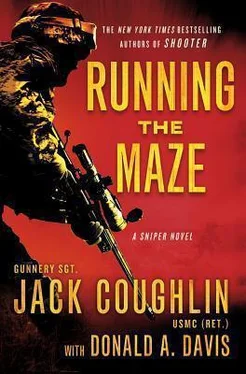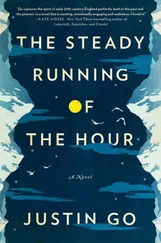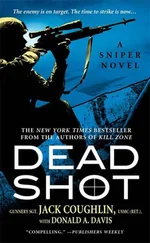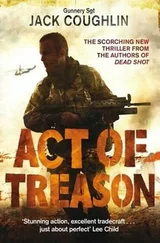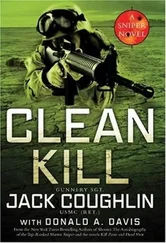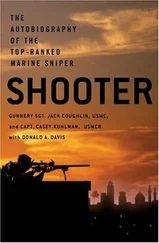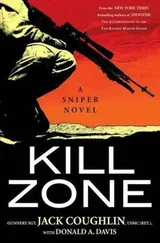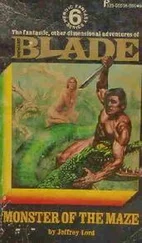The president closed his eyes and pushed his head back against his tall chair, stunned. “How long do we have before the America launch?”
“About seventy hours, sir. No need to scrub it until we find out more. There are always threats before a mission, and this one is from a man who is already known to be mentally unstable. We will stay on it. Meanwhile, security is being increased at the Cape. If there is any confirmation, we will stop the mission. Best for now to keep this information under wraps, and just stay alert.”
THE BRIDGE
HAD MOHAMMAD AL-ATTAS BEEN in his control room to steer the battle, the American aircraft would never have gotten close. Part of his design was to funnel such attacks into killing corridors protected by his automated shield of missiles, fast-firing cannon, clouds of masking electronics, jamming, directed electromagnetic pulses, and pinpoint fire control. Effective aerial attacks would have been almost impossible, and extremely heavy losses to the attackers would have been certain. However, there was no genius in the control chair to orchestrate the elaborate automated defense systems, nor were there troops around to maintain the computers and service the weapons. With much of the interior badly damaged, the bridge now stood empty and vulnerable. It had been on the edge of being fully operational, but now it had already ceased being a threat. Instead of being an impenetrable anchor for an imagined chain of virtual fortresses, it had reverted to a useless pile of rocks.
Lima Company (Reinforced), out of the 3rd Battalion, 7th Regiment, 1st Division of the United States Marine Corps, landed on the long, wide level bridge in a carefully timed series of deliveries by a covey of tilt-rotor Ospreys. AH-1Z Viper helicopter gunships flew figure-eight patterns to provide low overhead cover, and fighters orbited at ten thousand feet. Not a shot had to be fired as the squads charged out of the Ospreys and established a perimeter defense.
The only people around were a halted small military convoy of trucks and Humvees some three klicks away on the eastern approach road, and a pair of Vipers hovered at each end of it.
Company commander Captain Richard Mendoza was able to report back to Kandahar that the bridge was secure within five minutes of the first boot hitting the ground.
“Lieutenant Connelly, get the engineers and ordnance teams down into those tunnels. I want to drop this span and be out of here as soon as possible,” Mendoza ordered.
“Aye, aye, Skipper,” Connelly said, then passed the orders to the waiting sergeants. Men immediately began to disappear underground.
“Ever see such a chunk of chopped-up real estate, Captain?” asked Gunnery Sergeant Hale Dinsmore, looking out over the destroyed valley below them.
“I have not, Gunnery Sergeant, and we are going to make this bridge look just as attractive. What are the Vipers saying about that convoy?”
“Pakistan army, sir. Just sittin’ there. The Snakes are all over ’em.”
“If they move, light ’em up.”
“Yes, sir.”
* * *
LIEUTENANT FAROOQ HAD NO intention of moving, and in fact had ordered his men to stack their weapons in the beds of the trucks and leave the Humvee machine-gun positions empty. The radio link back to headquarters, he decided, had been damaged by the B-52 strike, which meant that he could make on-the-spot commands. His sergeant agreed the radio was inoperative and turned it off. Farooq then had his platoon brew tea and make themselves comfortable along the road for a while, walking around in the open, presenting no threat that could ignite a fight. At the pace the Americans were moving on this violent morning, their operation would not take much longer.
Helping make his choices easier were the two Viper attack helicopters that hung noisily a hundred feet above the roadbed, hemming the vehicles into place as carefully as dogs herd sheep. The stubby wings of the narrow helos held pods of 70 mm rockets, while 20 mm Gatlings were mounted beneath the noses. After what he had already witnessed, Farooq understood that on this day, it would not be a smart thing to get in the way of the Americans.
His sergeant brought him a canteen cup of hot tea, and the lieutenant blew on the liquid a few times before taking a sip, trying with all his might to maintain a sense of dignity. The pilot of one of those Vipers was staring at him through tinted goggles. Farooq smoothly raised his tin cup in a silent salute. The pilot nodded ever so slightly.
We understand each other, the lieutenant concluded, and he climbed atop his Humvee to watch the show. He felt almost privileged to be an observer at this demonstration of unlimited firepower.
WASHINGTON, D.C.
THE ARREST OF UNDERSECRETARY William Curtis was assigned to the Federal Bureau of Investigation, with Special Agent David Hunt in charge, and his orders were to carry out the apprehension with utmost care. To ensure radio silence and avoid tipping off the media, the D.C. Metropolitan Police were not alerted, nor were any Virginia law enforcement authorities. The Secret Service detail guarding the vice president’s residence on Observatory Circle was incorporated into the plan, since the FBI would be hitting the nearby BAIA office. As soon as the arrest was accomplished, the FBI was to turn Curtis over to the CIA for some serious questioning.
Hunt put two-agent teams to each corner of the BAIA property, then went up to the front door himself. He rang the bell, and a bewildered security guard opened up, his face dropping when Hunt flashed his creds and two more agents walked past with their guns drawn.
“Is Undersecretary Curtis here?” asked Hunt.
“No, sir,” said the guard, a bald giant who worked for a private security company contracted to provide overnight protection for a number of government buildings. “The place is empty, except for me and the two housekeepers who are asleep upstairs. Want me to call them?”
“No. Give me your weapon with the fingers of your opposite hand, and stay right here with me while the agents check things out. Have you seen Curtis tonight?”
The guard slowly removed his pistol from the holster on his right hip with his left hand as more FBI agents came into the building, also with their guns out. “I haven’t seen him, but I just came on duty at midnight. If you’ll let me look at my logbook over on the desk, I can give you the time when he left.”
“OK,” Hunt said. The guard nodded, happy to be part of whatever was happening, and showed the logbook to Hunt. Curtis had not been in his office since leaving for lunch, and the guard printed out a list of ranking bureau officials, with their addresses and telephone numbers. “Maybe one of them can help,” he said.
Hunt cocked his head to listen to the voices in his earpiece as the reports flooded in from agents clearing every room, and finding nothing. The housekeepers were awakened, came downstairs in their robes, and were questioned. Neither had seen the undersecretary.
Hunt ascended the curving staircase to find Curtis’s office. Everything he saw bespoke quiet elegance, with a distinct sense of Middle Eastern culture in the vases, paintings, ornate tile work, and lush carpets. The office itself was a dazzling display of artifacts that had been presented to the BAIA and Curtis by officials throughout the Arab world. The veteran agent had the feeling he was walking through some special exhibit at the Smithsonian, or a bazaar in Istanbul. Rubies and emeralds, intricate gold work, and shining silver winked beneath small spotlights, as if the objects knew something that he did not. A big picture window opened out on the darkened lawn.
Читать дальше
